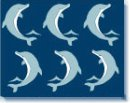

The major gaps were already identified in Section 4.2 of
the report by means of questioning National Consultants on ML about the outputs of ML-related projects and other
relevant activities implemented in their countries in 1996-2006 (see Table 4.3). Besides, based
on available knowledge, the National Consultants were requested to set priorities – “primary”, “secondary”
and “next to
According to the summarized scores based on individual estimates by the National Consultants, at least seven (but probably more) high priority actions should be taken into careful consideration. They are: (1) correction of waste management policy; (2) improvement of legal and administrative instruments; (3) development of sustainable ML management; (4) development of ML monitoring methodology; (5) national assessment of ML pollution; (6) preparation of proposals to prevent and reduce ML; and (7) preparation of awareness and educational tools.
The Special Session on ML was organized by the
The pre-final draft of this report was presented as well as the National ML Reports. Special attention was devoted to the results of expert evaluation of priorities in coverage of ML problem on the national level (see Section 6.1). However, it was noted that the summarized “national” scores do not necessarily reflect the ML priorities on the regional scale. At the same time, participants of the meeting agreed that the major gaps and needs in coverage of ML management on the regional level descend from the national ones, thus, the regional gaps and needs could be summarized as follows:
(a) underdevelopment of waste management policy and, particularly, its incompleteness and low efficiency in respect of ML issues;
(b) imperfection and disbalance of legal and administrative instruments developed for solid waste and ML management;
(c) lack of common ML monitoring and assessment approach based on the standardized methodologies and assessment criteria;
(d) deficiency of practical measures destined to prevent and reduce ML pollution;
(e) technological lag in respect of contemporary methods and devices for collection, processing, recycling and disposal of solid wastes and ML;
(f) insufficiency of public awareness/education regarding ML problem;
(g) low level of involvement of general public and private sector in combatting ML pollution;
(h) gaps
in professional knowledge on ML issues among managers and authorities involved
in the protection of the
Table 6.1. Identification of priorities by national consultants on ML
(P – primary, S – secondary, U – unimportant, “—” – not assessed)
| Actions |
|
|
|
|
|
|
| Improvement of legal and administrative instruments | P | P | P | S | P | P |
| Correction of waste management policy | P | P | P | P | P | P |
| Development of sustainable ML management | P | P | P | S | P | P |
| Development of ML monitoring methodology | P | P | P | S | P | P |
| Organising and maintaining ML monitoring facilities | S | P | S | P | S | P |
| National assessment of ML pollution | P | P | P | S | P | P |
| Preparation of proposals to prevent and reduce ML | S | P | P | P | P | P |
| Development of campaigns/services for ML collecting | S | P | S | U | S | P |
| Elaboration of ML collecting technologies/devices | S | S | S | U | S | P |
| Elaboration of ML processing technologies/devices | S | S | S | P | S | P |
| Development of port reception facilities for garbage | P | P | S | S | S | P |
| Involvement of stakeholders in anti-ML partnership | P | S | S | S | — | P |
| Training of officers involved in ML management | S | S | P | U | S | S |
| Preparation of professional sectorial guidelines | P | S | P | S | S | P |
| Preparation of awareness and educational tools | P | P | P | P | P | S |
| Preparation of 'responsible citizenship' guidelines | S | S | P | P | S | S |
| Initiation of awareness-raising campaign in media | P | S | P | S | P | S |
| Promotion of public participation in cleanup activities | S | P | P | U | P | S |
| Research of social and economic costs of ML | P | — | — | — | — | — |
| Implementation of “polluter pays” principle for ML | P | — | — | — | — | — |